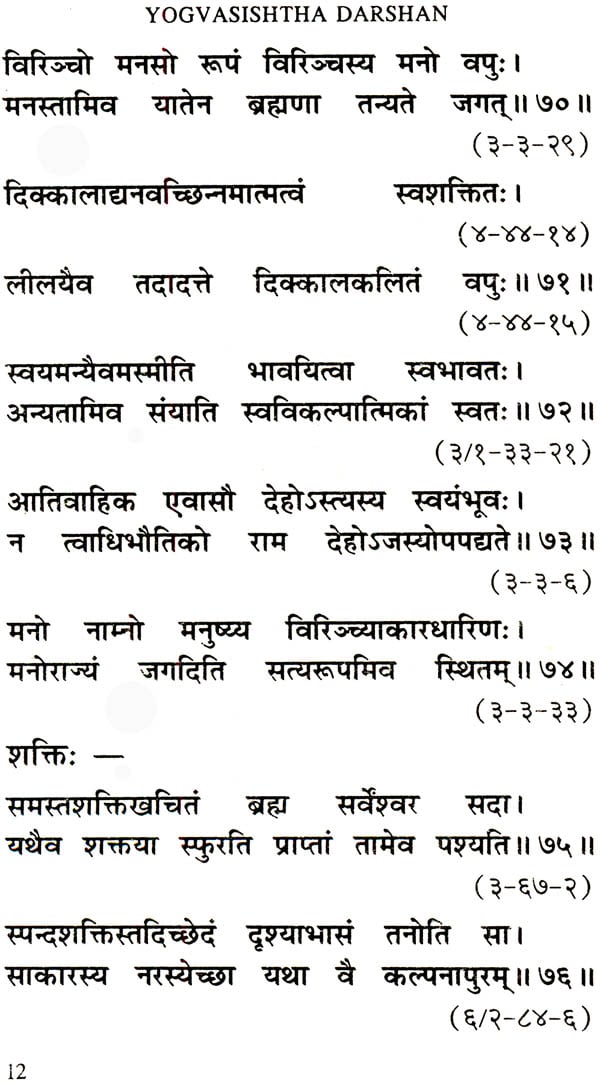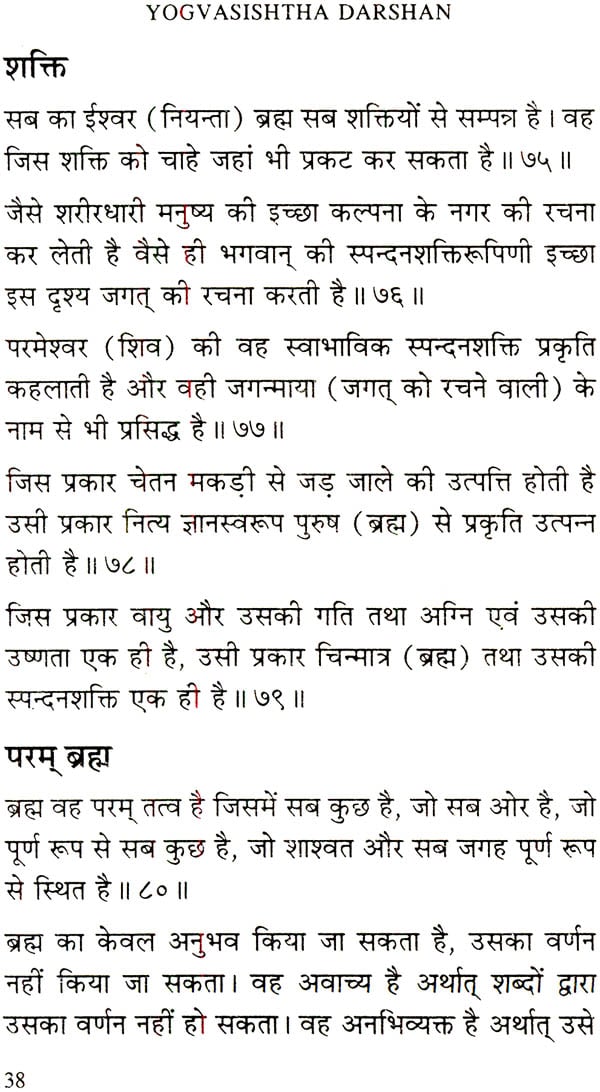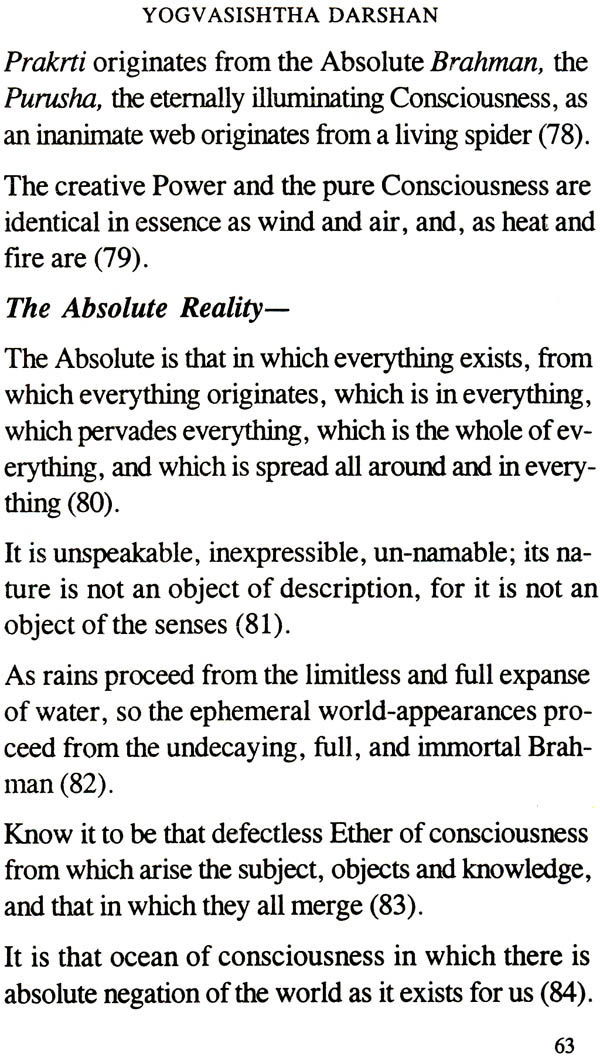
Yogavasishtha Darshan
Book Specification
| Item Code: | NAF656 |
| Author: | Prof. B.L. Attreya |
| Publisher: | Pilgrims Book Pvt. Ltd. |
| Language: | English |
| Edition: | 2006 |
| ISBN: | 9788177694048 |
| Pages: | 120 |
| Cover: | Paperback |
| Other Details | 7.0 inch x 5.0 inch |
| Weight | 100 gm |
Book Description
The Yogavãsistha is one of the best Sanskrit works on Monistic Philosophy. It is not only a theoretical exposition of the deepest Philosophy of India which may be called Spiritualistic Idealism but it is also a great work on Practical Yoga or Methods of Deification of Man. Traditionally it is believed to have been composed by Valmiki, the great author who is said to be the first poet of classical Sanskrit and the composer of the well-known Valmikiya Rãmãyana. Whether the tradition is absolutely correct or not there is no doubt that the work Yogavasistha was composed much earlier than the great monistic philosopher of India, Shri Shankaracharya. It is one of the three greatest spiritual works of India, the other two being, the Upanishads and the Bhagavadgita. Traditionally it consists of 32000 stanzas. The current editions of the work, however, contain only 27,687 stanzas. On account of its voluminousness, which is due to, its being a literary work and due to repetition of ideas over and over again, it has always beenfelt by its readers that the book should be summarized. Quite a number of attempts have been made to summarize it. None of them, however, is satisfactory from logical and scientific points of view. The present attempt, Yogavasisthasara, at a summary of the philosophical ideas contained in the book is free fronithe defects of the earlier attempts. It contains in a nutshell all the philosophical ideas of the Yogavasistha topically arranged in a systematic manner, in the language of the original author, the headings alone being ours. It has been translated into English for the Reader by me.
For a fuller understanding of the Philosophy of the work, the reader is advised to read the other books of the writer, The Philosophy of Yogavasistha, Yogavasistha and Its Philosophy, and Yogavasistha And Modern Thought.








